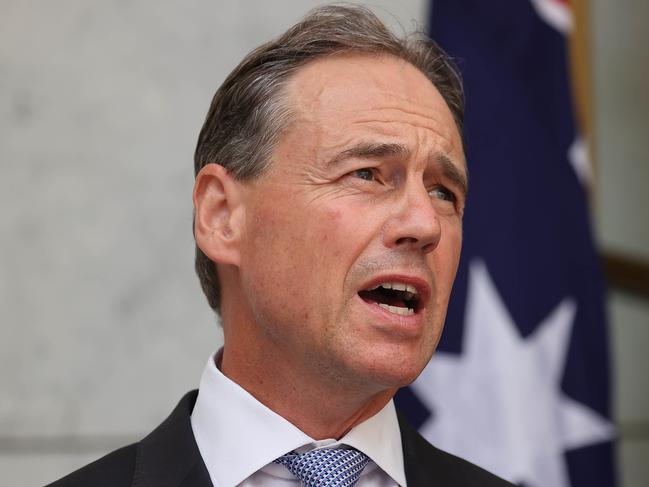Basic policies ‘junk’ – Catholic hospitals call out private health insurance tax dodge
A peak body claims almost two thirds of private health insurance policies sold in Australia are ‘junk’, and used as a tax dodge.

More than 60 per cent of Australia’s health insurance policies are “junk” and taken out mostly by wealthier Australians as a tax avoidance strategy, the peak body representing Catholic health providers says.
Catholic Health Australia – the country’s biggest non-government provider of hospital, aged care and community health services – is calling for a shake-up of Australia’s four-tier private health insurance system, barely three years after it was introduced.
It comes as private health insurers have posted record profits during the pandemic – totalling $1.8bn across the sector last year – while private hospitals have lost hundreds of millions of dollars from elective surgery bans and other Covid-related costs, such as personal protective equipment.
Catholic Health Australia health policy manager Alex Lynch said the “basic” level of health insurance – which has grown from representing a third of all policies in 2015 to almost two-thirds – was “near worthless” and a “shocking waste of money our health system can no longer afford”.
Specifically he said Australians earning more than $90,000 a year were taking out basic cover to avoid paying the Medicare Levy Surcharge, which attracts a rate of up to 1.5 per cent of a person’s annual income.
“The purpose of the Medicare Levy Surcharge (MLS) is to take pressure off the public health system,” Mr Lynch said. “And basic policies just give you a very, very minimalistic amount of private health cover in a public hospital.
“So by definition, therefore, it’s not sending you to a private hospital and taking pressure off the public system.
“We feel these basic policies should just be removed from the MLS avoidance list and it’s also important to point out that the median income in Australia is something like $51,000.”
The higher proportion of people taking out basic cover also puts pressure on premiums and those who take out more expensive policies.
Health Minister Greg Hunt introduced the four-tier system – gold, silver, bronze and basic – in late 2018 to make health insurance simpler and more affordable.
But tensions have been simmering between private hospital operators and the insurers that fund them, and have boiled over in the pandemic.
Private health insurers – from listed titans Medibank and NIB to not-for-profit operators – say they are not profiteering from Covid-19 and are returning surplus funds to policyholders in various ways, from writing cheques to suspending annual premium hikes.

The Australian Competition and Consumer Commission has meanwhile put health insurers on notice about “conservatively” calculating pandemic savings.
But longer-term, the sustainability of the private health system is a stake.
Before the pandemic, the young and healthy were withdrawing from private health insurance in droves, while private hospitals said the symbiotic relationship between the public and private system had been up-ended, amid claims government-run hospitals were “harvesting” private patients.
All hospital groups agree that a big positive from the pandemic is that the public and private sectors are co-operating like never before.
But the ban on elective surgery – particularly in Victoria, which accounts for 20 per cent of the revenue of Australia’s biggest private hospital operator, Ramsay – has blown a hole, totalling hundreds of millions of dollars, in hospital balance sheets.
While the federal government provided a viability guarantee to private hospitals, it only covered the cost of treating patients, leaving no cash to reinvest in equipment, training or servicing debt
In its federal budget submission, Catholic Health Australia urged the federal government to reform the private health insurance system, which would help shore up funding in the private sector.
“Most of these ‘junk’ policies merely allow holders to enter the public system as a private patient,” Mr Lynch said.
“Junk policies allow individuals to avoid paying extra tax and provide a super-easy revenue stream for private health insurers. But they offer zero relief to the overburdened public hospital system, nor value to customers.
“We need to recalibrate the system so people are either paying the MLS to fund more Medicare or receiving proper insurance that reliably allows them to be treated in the private health system.
“Our current system, which encourages private health insurers to make big profits from selling near-worthless products, is a shocking waste our health system can no longer afford.”
Mr Lynch said bronze-level policies should be the minimum level of cover to be exempt from the MLS. He said bronze policies cover 18 categories of services in private hospitals, and typically cost between $1-$10 more than basic policies.
“And you receive extraordinarily higher value. A private health policy should give you the chance to exercise choice and use private hospitals where suitable,“ Mr Lynch said.
“The current pandemic has highlighted the need for government to encourage the use of private hospital resources so they can take pressure off the public system. But this can only happen if we start winding up the sale of ‘junk’ private health insurance that sees people pushed into public hospitals anyway.”




To join the conversation, please log in. Don't have an account? Register
Join the conversation, you are commenting as Logout